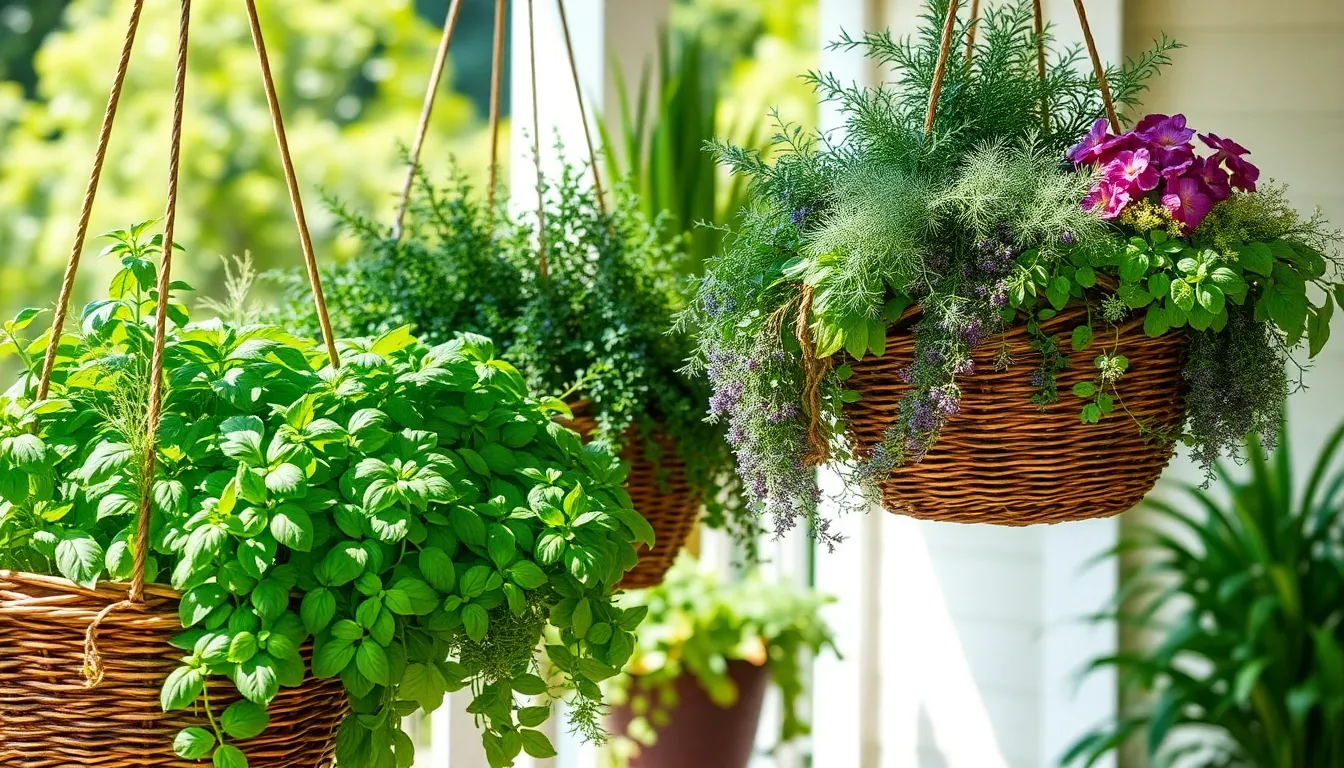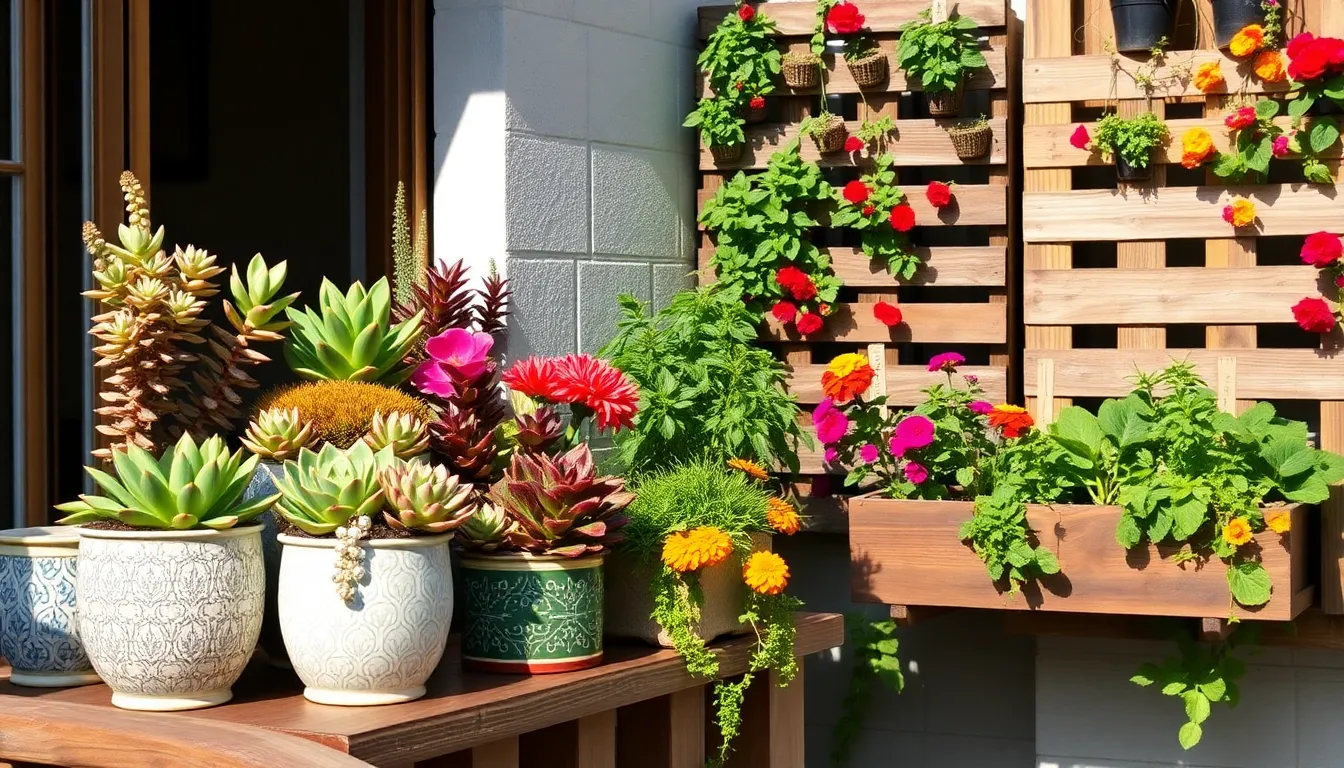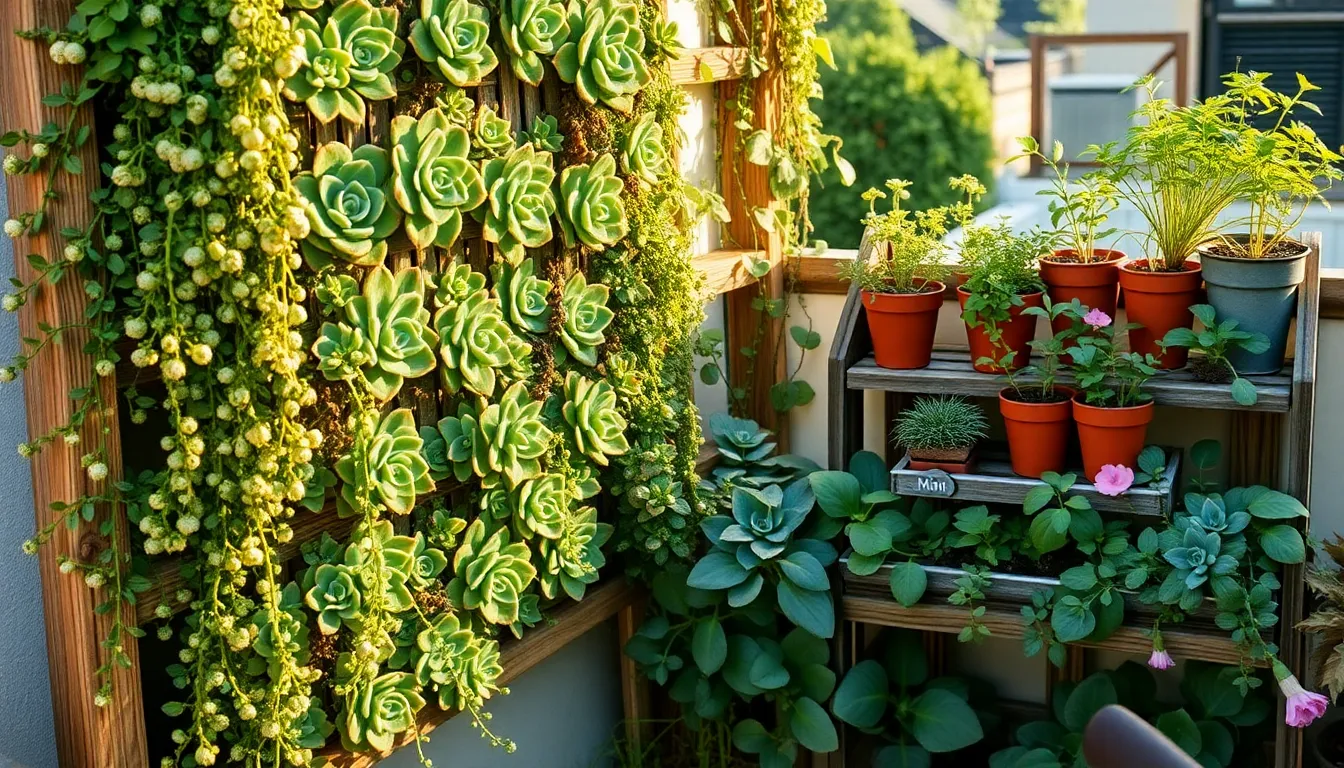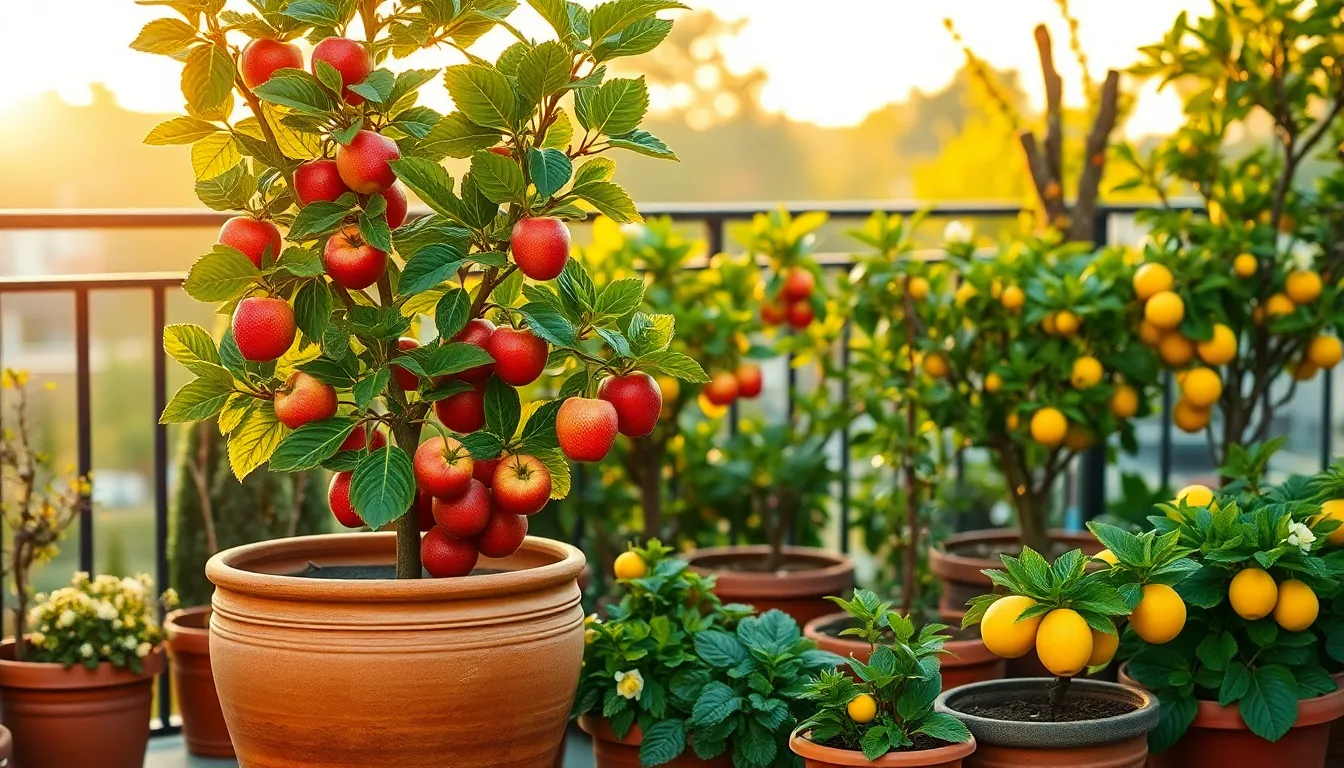Imagine stepping into your garden or onto your balcony and being greeted by the delightful aroma of fresh herbs cascading from hanging baskets. Whether you’re a novice gardener dipping your toes into the world of plants or a seasoned green thumb seeking a creative twist, growing herbs in hanging baskets offers a versatile and space-saving solution that brings both beauty and utility to your outdoor space. Herbs have been cherished for centuries, not just for their culinary magic but also for their ability to enhance our gardens with vibrant textures and scents. By elevating your herbs in hanging baskets, you give them the spotlight they deserve while making the most of limited space.
In this article, you’ll discover how to select the right herbs for hanging baskets, ensuring they thrive in their suspended homes. We’ll guide you through the steps to create an ideal environment, from soil selection to proper watering techniques, helping both beginners and experienced gardeners achieve flourishing results. You’ll learn about the unique care needs of popular herbs like basil, thyme, and mint, each of which brings its own charm and flavor to your garden. Additionally, we’ll cover innovative design ideas that transform your hanging baskets into stunning focal points, adding a touch of elegance to any space.
Growing herbs in hanging baskets is not only practical but also an enjoyable gardening endeavor that brings fresh flavors to your kitchen and joy to your heart. As you embark on this gardening adventure, you’ll find that even a small space can become a lush, aromatic haven with a few simple steps and a dash of creativity. So, let’s dive into the world of hanging basket herb gardening and unlock the potential for beauty and bounty right at your fingertips.
Select Suitable Herb Varieties
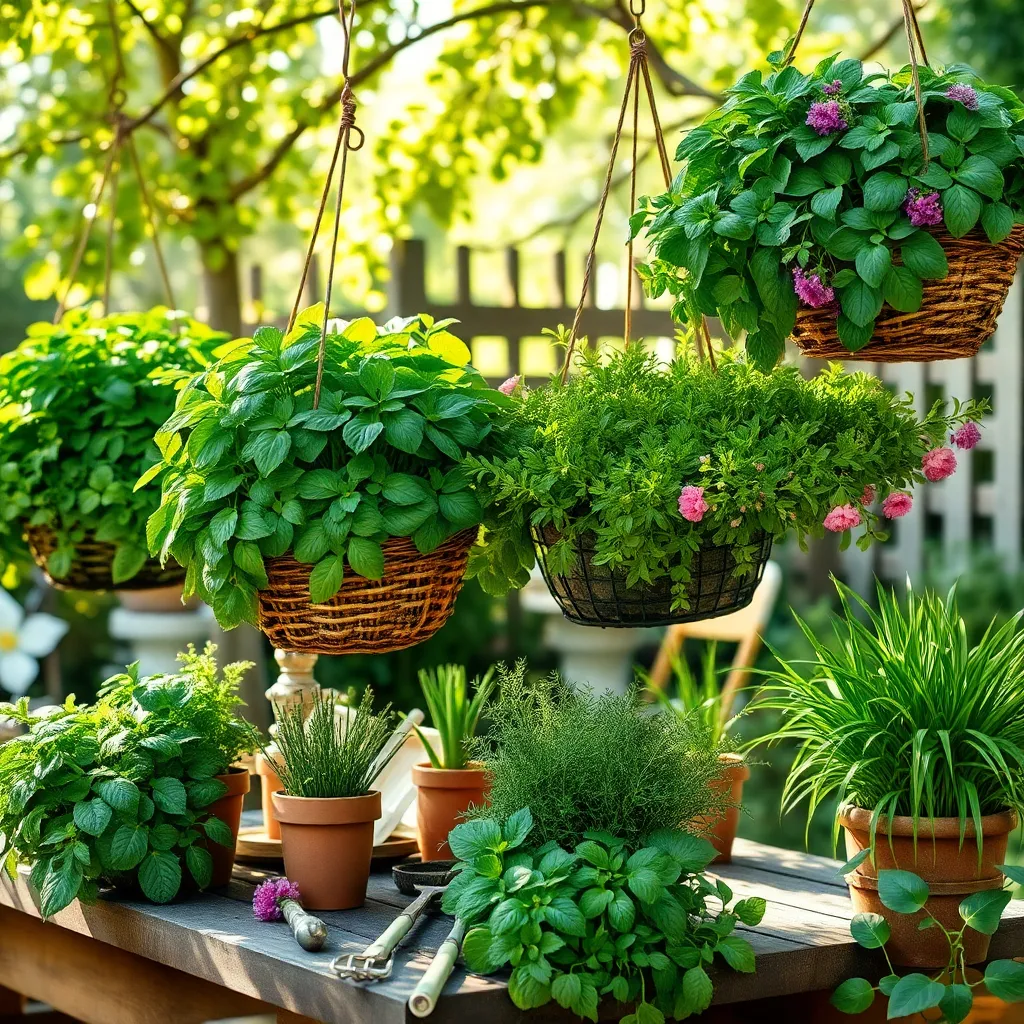
When choosing herb varieties for hanging baskets, consider plants that thrive in small spaces and have cascading growth habits. Thyme, oregano, and marjoram are excellent choices due to their trailing stems and ability to prosper in confined environments.
It’s important to match the herb’s growing requirements with your local climate and the basket’s sun exposure. For example, rosemary and basil prefer full sun, while parsley and mint can tolerate partial shade, making them versatile options for various locations.
Herbs in hanging baskets benefit from a well-draining soil mix to prevent root rot. Use a combination of potting soil, perlite, and coconut coir to maintain moisture balance and provide adequate drainage for healthy root development.
Regular watering is crucial, as hanging baskets dry out more quickly than ground-based plants. Check soil moisture daily, and water when the top inch feels dry, ensuring the water reaches the roots to support lush growth.
Prepare Well-Draining Potting Mix
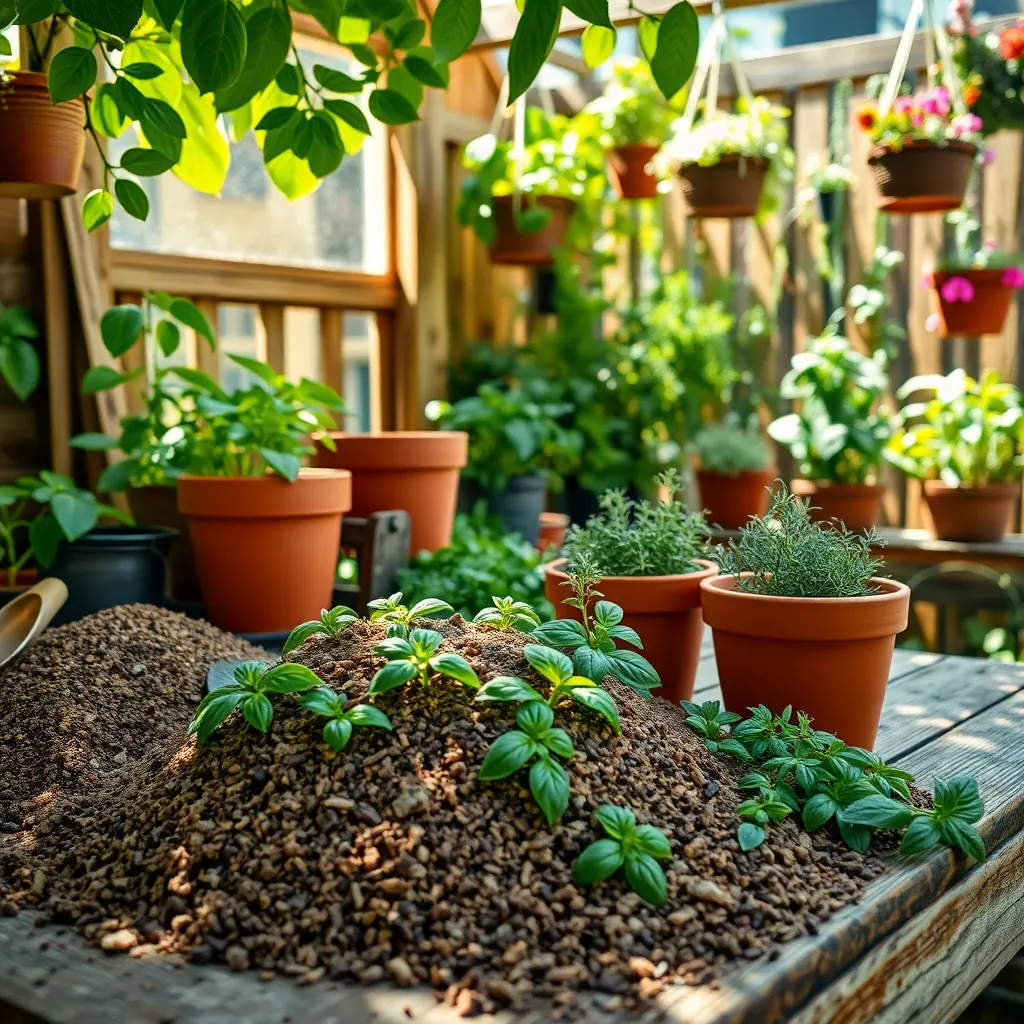
Creating a well-draining potting mix is essential for growing healthy herbs in hanging baskets. Start by combining equal parts of high-quality potting soil and coarse sand to ensure that excess water can easily escape.
Adding perlite to your mix can further enhance drainage and prevent soil compaction. Perlite is a lightweight volcanic material that helps aerate the soil, promoting healthier root growth.
For those looking to improve moisture retention without sacrificing drainage, consider incorporating coconut coir. This sustainable material absorbs water and releases it slowly, helping to keep your herbs hydrated without waterlogging.
It’s important to ensure your potting mix is nutrient-rich to support herb growth. You can achieve this by mixing in a small amount of organic compost, which provides essential nutrients while also improving the soil structure.
Plant Herbs at Correct Spacing
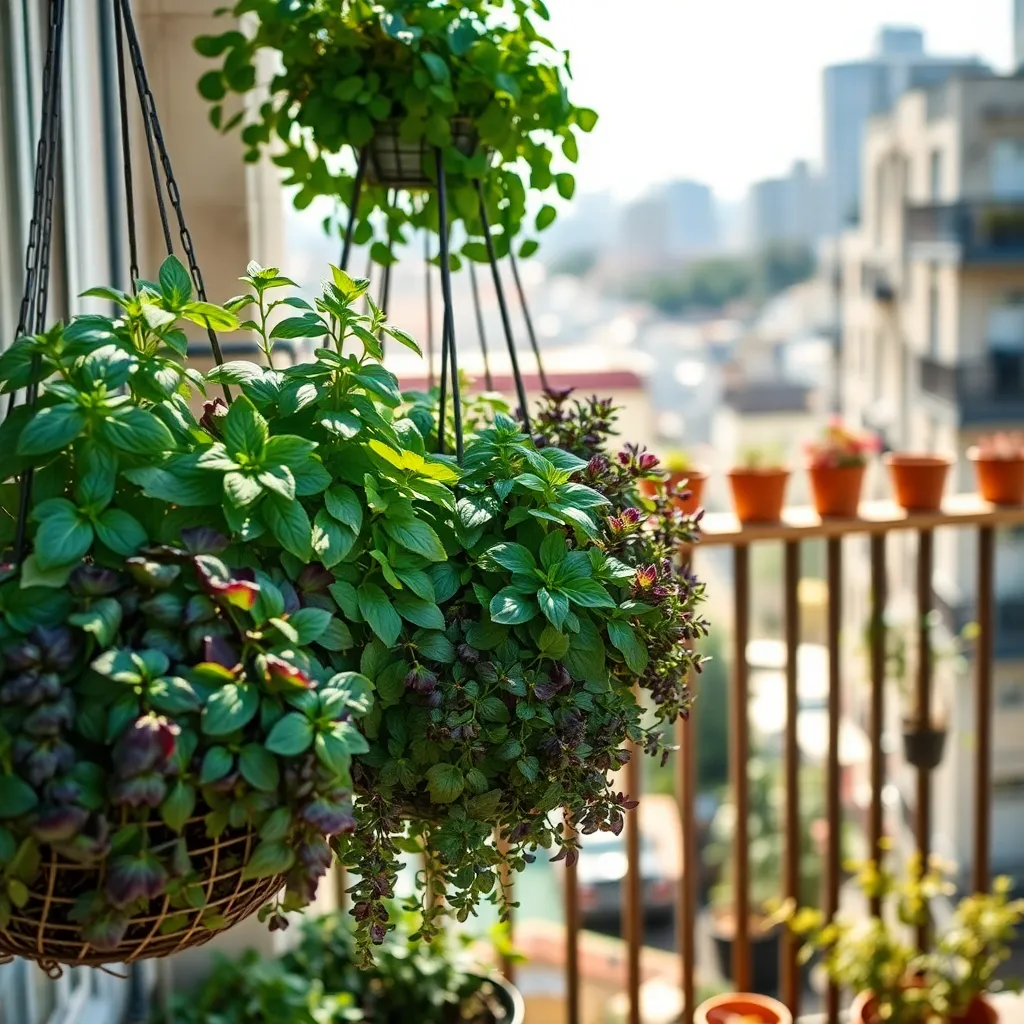
Proper plant spacing is crucial when growing herbs in hanging baskets to ensure healthy growth and development. By maintaining adequate distance between plants, you allow for sufficient air circulation, which helps prevent diseases common in humid environments.
To achieve the best results, consider the mature size of each herb variety before planting. For example, basil and mint can spread quickly, so it’s best to plant them about 8 inches apart to avoid overcrowding.
Chives, parsley, and thyme have more compact growth habits and can be spaced closer together, around 4 to 6 inches apart. This spacing allows these herbs to thrive without competing for nutrients and water.
When planting, use a well-draining potting mix to further support healthy herb growth. A mix containing perlite or coarse sand will help maintain moisture balance while preventing root rot.
For advanced gardeners, consider rotating your hanging baskets periodically to ensure even sun exposure. This practice can help herbs grow more uniformly and enhance their flavor profiles.
Hang Baskets in Sunny Spots
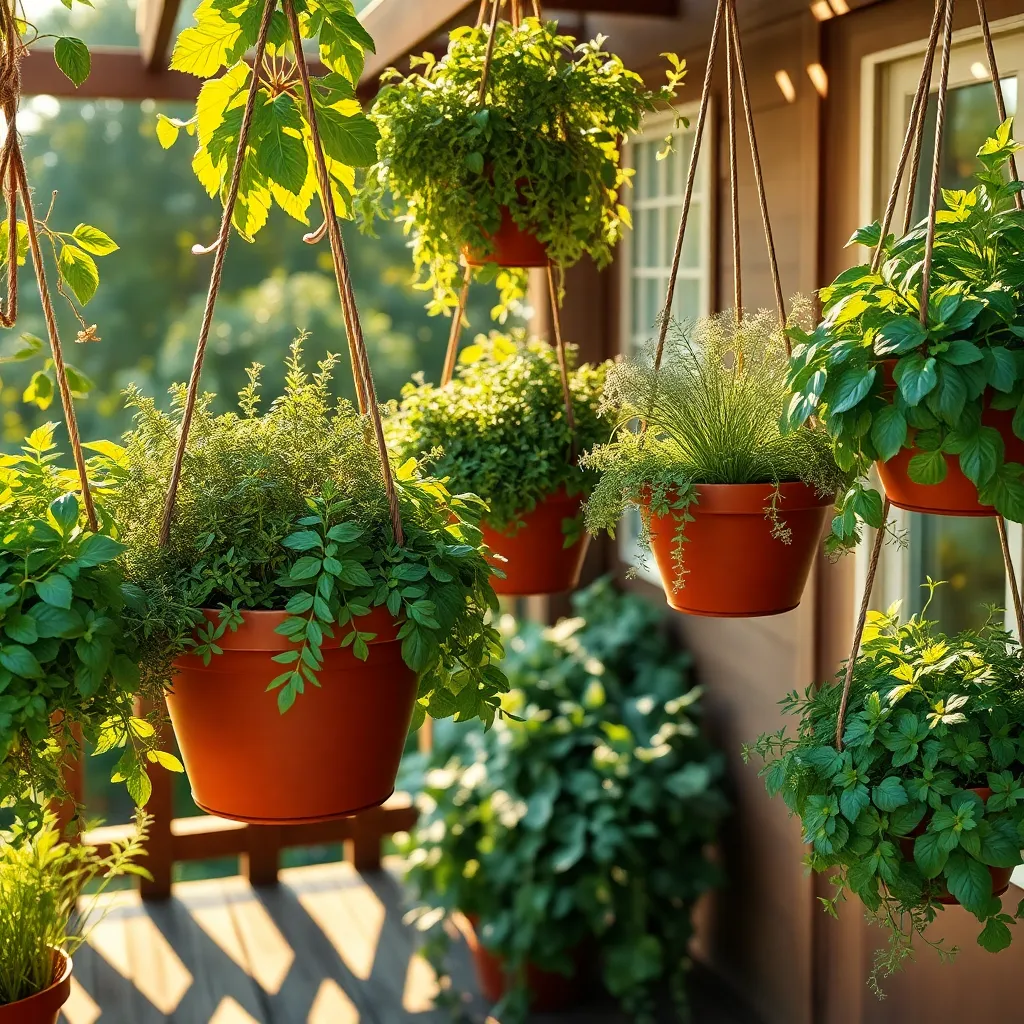
Hanging baskets thrive when placed in sunny spots, as most herbs love sunlight. Aim for a location that receives at least six hours of direct sun daily to ensure healthy growth and abundant harvests.
Consider the positioning of your hanging baskets to maximize sunlight exposure. If you notice shadows creeping in, try rotating the baskets periodically to ensure even light distribution for all plants.
For optimal growth, choose a well-draining potting mix rich in organic matter. A mix that includes perlite or vermiculite is ideal for preventing waterlogging and ensuring that roots receive sufficient air.
Remember to water your herbs regularly, especially in sunny locations where they dry out quickly. Check the soil moisture by sticking your finger about an inch deep into the soil; if it feels dry, it’s time to water.
To boost plant health, consider adding a slow-release fertilizer to your potting mix. This provides a steady supply of nutrients over time, ensuring your herbs have everything they need to flourish in their sunny perch.
Water and Prune Regularly
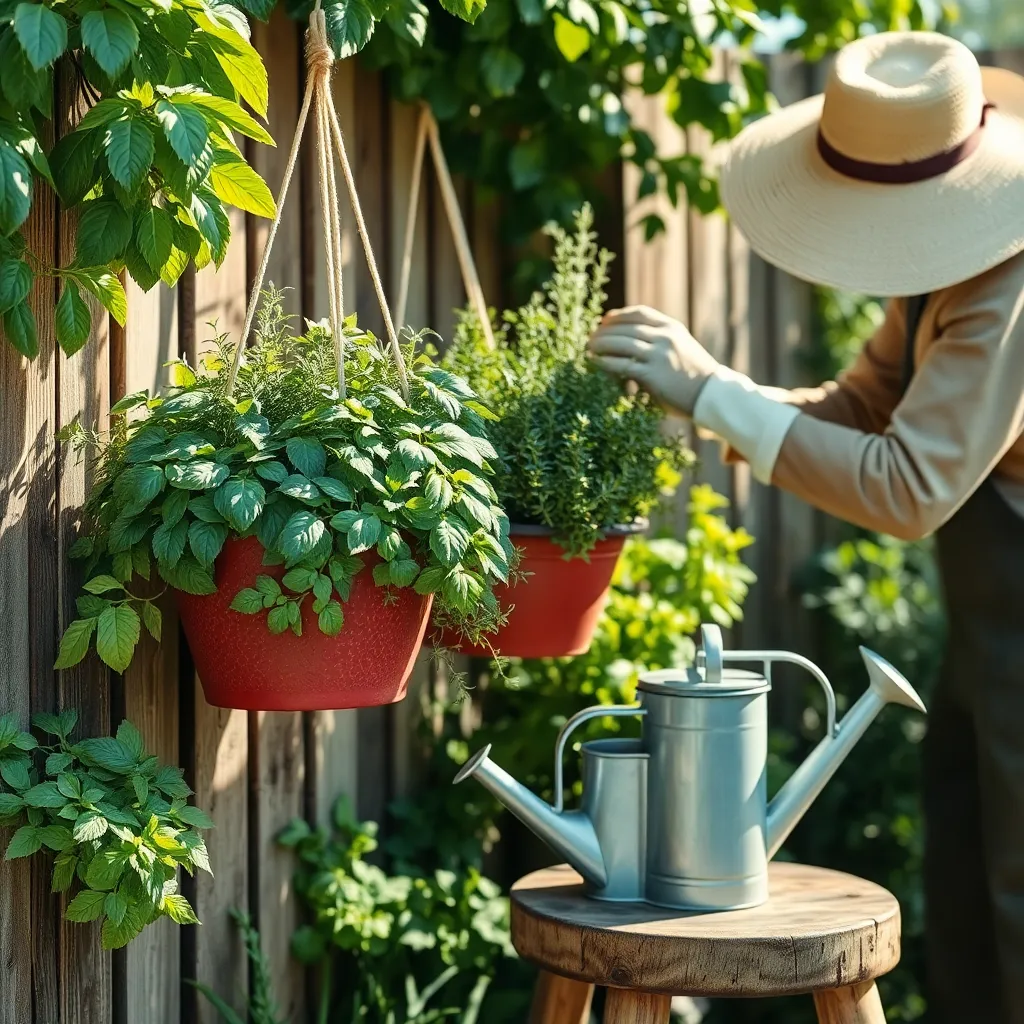
Watering your herbs regularly is crucial to their success in hanging baskets. These baskets tend to dry out faster than ground soil, so it’s essential to check moisture levels daily, especially during warm weather.
Insert your finger about an inch into the soil to gauge its moisture content. If the soil feels dry at this depth, it’s time to water your plants thoroughly until water begins to drain from the bottom of the basket.
Consistency is key to ensuring herbs remain healthy and productive in their elevated homes. To help retain moisture, consider adding a layer of mulch, such as shredded bark or straw, which can also reduce evaporation.
Pruning is just as important as watering for maintaining vibrant, bushy herbs. Regular pruning encourages new growth and prevents the plants from becoming leggy or overgrown.
Use a clean pair of scissors or garden shears to trim back the herbs, focusing on cutting just above a leaf node to promote branching. Harvesting your herbs frequently not only enhances their flavor but also keeps them in check and thriving.
For advanced gardeners, consider learning specific pruning techniques for certain herbs, like pinching basil or cutting back woody herbs such as rosemary. This attention to detail can significantly enhance the health and productivity of your herb baskets.
Conclusion: Growing Success with These Plants
In nurturing relationships, much like growing herbs in hanging baskets, a little care goes a long way. We’ve explored five key concepts to elevate your relational garden: communication as the sunlight that fosters growth, trust akin to the soil that anchors everything, the importance of space as ample room for each partner to thrive, shared activities which enrich like water, and patience that allows time for blooming through challenges. These principles aren’t just theoretical; they’re practical guides to cultivating a flourishing connection.
As an immediate next step, choose one of these concepts to focus on this week—perhaps initiate a heartfelt conversation, or plan an activity that brings you closer. By taking even a small step today, you’re investing in a healthier, more fulfilling relationship tomorrow.
Bookmark this article now so you can revisit these essential strategies when needed. Looking ahead, applying these insights consistently will not only fortify your current relationship but also lay the groundwork for enduring success in all your interpersonal connections. Remember, every effort you make today is a seed planted for a loving and resilient relationship tomorrow.

